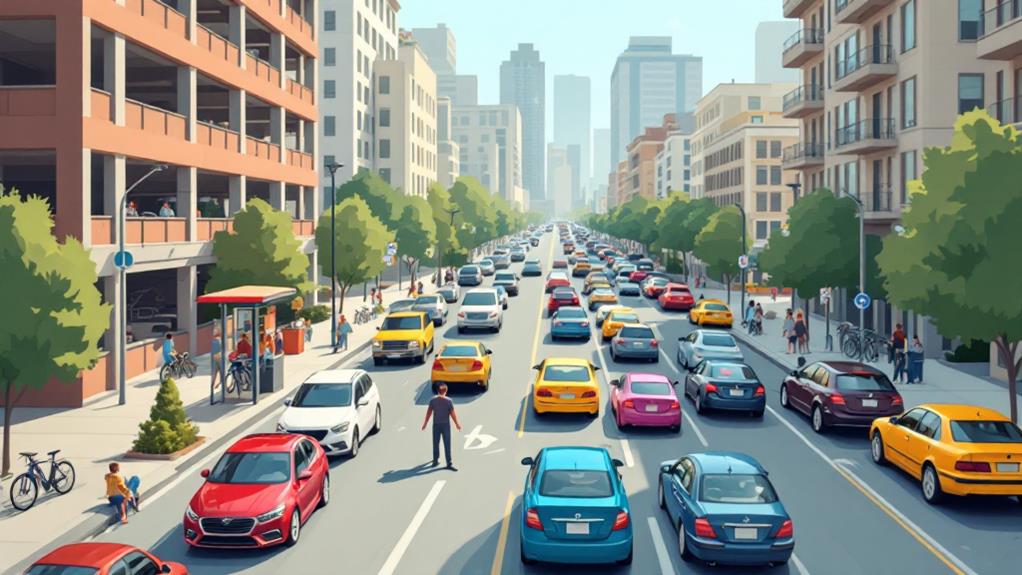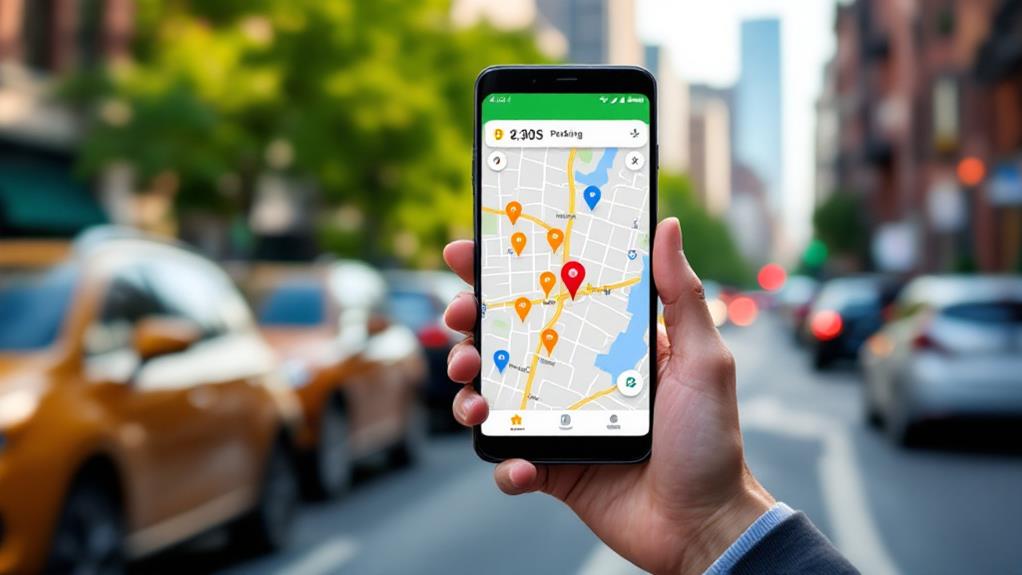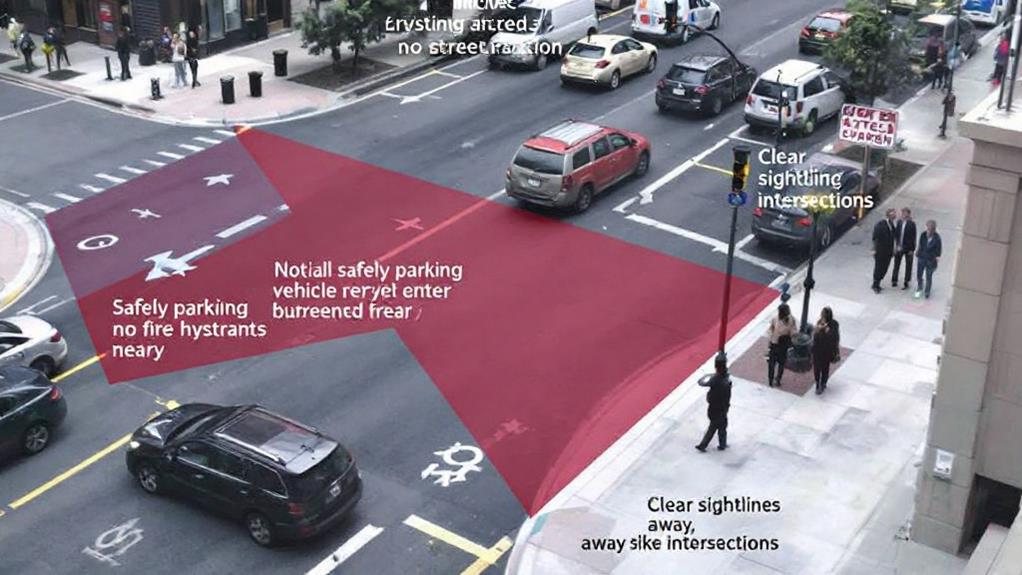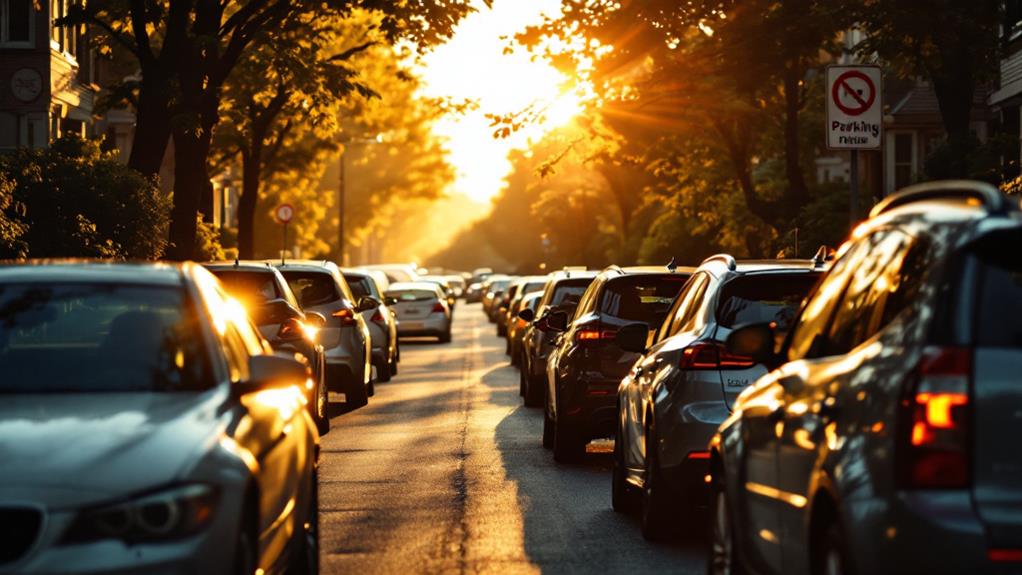Is Street Parking Safe? Pros and Cons for City Drivers

Street parking in cities offers convenience and affordability, but it comes with risks. You'll find spots closer to your destination and often pay less than off-street options. However, your car may be more vulnerable to vandalism, accidents, and weather damage. To stay safe, choose well-lit areas, avoid parking under trees, and perfect your parallel parking skills. Be mindful of complex parking laws to avoid tickets. While street parking can save you money, it is crucial to weigh the pros and cons against off-street alternatives like garages or lots. Understanding these factors will help you make the best choice for your urban parking needs.
Advantages of Street Parking
Convenience and affordability are two major advantages of street parking. When you're looking for parking spots in busy urban areas, on-street parking often provides a cost-effective solution. You'll typically pay $1-4 per hour at parking meters, compared to $10-60 per hour in off-street parking lots or garages. This significant price difference can lead to substantial savings, especially if you're a frequent city driver.
Street parking also offers unparalleled convenience. You'll find parking spots closer to your destination, allowing for quicker entry and exit from your vehicle. This proximity is particularly beneficial during peak hours when off-street parking facilities may be full. Additionally, on-street parking provides flexibility, letting you choose from various locations to park closer to where you need to be.
Another advantage is the availability of street parking during off-peak hours. You're more likely to find Free Parking or readily available spots when traffic is lighter. In addition, parallel parking on streets requires less infrastructure and maintenance compared to parking lots, resulting in lower costs for both municipalities and drivers. Remember to always check local parking rules to avoid fines and guarantee a stress-free experience.
Risks and Disadvantages
While street parking offers benefits, it's important to weigh the potential drawbacks. When you park on the street, you expose your vehicle to a higher risk of vandalism, break-ins, and accidents compared to off-street options like parking lots. Urban areas, in particular, can be hotspots for these issues.
Street parking also comes with complex parking laws and restrictions that can lead to costly parking tickets if you're not vigilant. The unpredictable nature of available spaces in busy areas can result in frustrating searches and wasted time. Additionally, your car faces increased vulnerability to weather-related damage when parked on the street, including hail, snow, and tree sap that can harm its exterior.
Traffic safety is another concern, as parallel parking in tight spaces can be challenging and increase the likelihood of minor collisions and scrapes. These risks, combined with the stress of maneuvering parking restrictions and the potential for fines, make street parking a less secure option compared to dedicated parking facilities. Consider these factors carefully when deciding where to park your vehicle in urban environments.
Safety Precautions

Street-smart parking strategies can markedly enhance your vehicle's safety when using on-street spaces. When searching for local parking, opt for corner parking spots to reduce the risk of being blocked or sustaining bumper damage. As you drive around, look for brightly lit areas, which deter vandalism and theft when your car is parked on the street.
Honing your parallel parking skills or utilizing vehicle features designed for tight spaces can help you maneuver challenging street parking situations. Be mindful of your surroundings and avoid parking under trees to prevent paint damage from bird droppings and tree sap. Additionally, consider the potential for flooding and park on higher ground when possible to protect your vehicle from water damage.
While street parking may not offer the same level of security as parking garages with security personnel, following these precautions can drastically reduce risks. Always familiarize yourself with local rules and regulations regarding street parking to avoid fines or towing. By implementing these safety measures, you can make the most of this type of parking while minimizing potential hazards to your vehicle.
Cost Considerations
When it comes to parking costs, you'll often find that on-street options are easier on your wallet. On-Street vs. off-street parking can make a significant difference in your expenses, with street parking typically ranging from $1-4 per hour compared to $10-60 for parking garages. However, it is crucial to evaluate the trade-offs between cost and convenience.
While on-street parking may be your best bet for saving money, it's not always easy to access. You'll need to search for vacant spots and be mindful of time limits imposed by local authorities. These restrictions can lead to costly fines if you're not careful. On the other hand, off-street parking spaces often offer flat rates and longer durations, which might work better for extended stays.
Your choice between on-street and off-street parking will depend on your budget and how much you're willing to spend for convenience. If you're looking for the best spots at the lowest cost, street parking is usually the way to go. Just remember that how parking works in each city can vary, so always check local regulations to avoid unexpected expenses.
Alternatives to Street Parking

If you're concerned about the safety or availability of street parking, there are several options to consider. Off-street parking facilities like garages and lots often provide more security features than a typical street parking spot. These include better lighting, surveillance systems, and on-site personnel to deter criminal activity.
When examining alternatives to street parking, you'll find that parking garages can protect your vehicle from weather-related damage caused by rain, snow, or hail. Additionally, off-street parking options usually offer larger capacity and more consistently available spaces, especially in busy cities like New York or San Francisco.
You might want to investigate parking apps like Best Parking to locate convenient off-street options near your destination. Some facilities even offer Valet Parking for added convenience. While these alternatives typically cost more than street parking, the added security and convenience may be worth it, particularly during specific times when street parking is scarce.
When evaluating Parking: Pros and cons, remember that off-street parking can often be more conveniently located near popular destinations, reducing your walking distance and potentially enhancing your overall safety.



